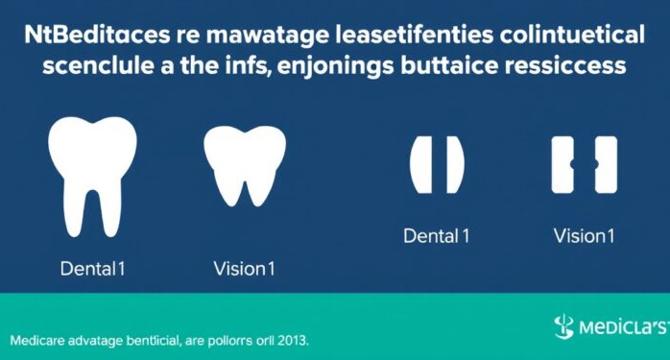Bioengineer
1w
386

Image Credit: Bioengineer
Medicare Advantage Beneficiaries Show No Increase in Dental, Vision, or Hearing Care Access
- Medicare Advantage plans fail to deliver promised dental, vision, and hearing care services, according to a recent study by researchers at Mass General Brigham.
- The study was conducted using surveys of over 76,000 Medicare beneficiaries between 2017 and 2021, indicating that nearly half of Medicare Advantage enrollees were not even aware that they had dental or vision coverage under their plans.
- This lack of awareness highlights a potential gap in outreach and education efforts, which could lead to underutilization of available care and ultimately influence health outcomes adversely in this vulnerable population.
- The research also indicates that the extra funds allocated to Medicare Advantage plans may not be translating into tangible benefits for patients. In fact, on average, enrollees in these plans incurred similar, if not higher, out-of-pocket expenses for supplemental care compared to traditional Medicare users.
- Medicare Advantage enrollees showed no increased likelihood of receiving critical services such as eye examinations and hearing aids compared to those on traditional Medicare. The research reveals that the supplemental benefits marketed heavily by Medicare Advantage plans do little to enhance access.
- There are concerns regarding the sustainability of such a model as Medicare Advantage plans spend about $3.9 billion on vision and dental services while beneficiaries themselves contribute $9.2 billion out-of-pocket. Furthermore, there is a potential misalignment between the objectives of Medicare Advantage plans and the actual accessibility of benefits for enrollees.
- This research adds to a growing body of literature questioning the value proposition of privatized Medicare models. Critics of Medicare Advantage have long argued that the privatization of Medicare leads to excessive costs to taxpayers without corresponding value to enrollees.
- As the healthcare landscape constantly evolves, policymakers should consider evidence such as this one while shaping future Medicare policies. Medicare beneficiaries must receive adequate, affordable, and accessible care in whichever plan they choose.
- It is critical for Medicare Advantage plans to improve outreach to members and re-evaluate their benefit structures to ensure better financial resource allocation. These findings may serve as a catalyst for reevaluating the efficacy and transparency of managed care within the Medicare system.
- Managed care within the Medicare system warrants immediate attention from healthcare professionals, policymakers, and the insurance industry alike to deliver additional healthcare services.
Read Full Article
23 Likes
For uninterrupted reading, download the app